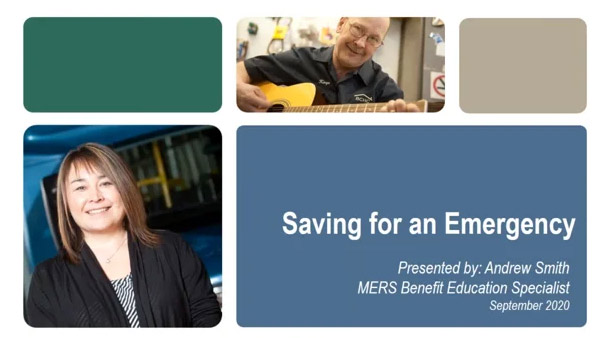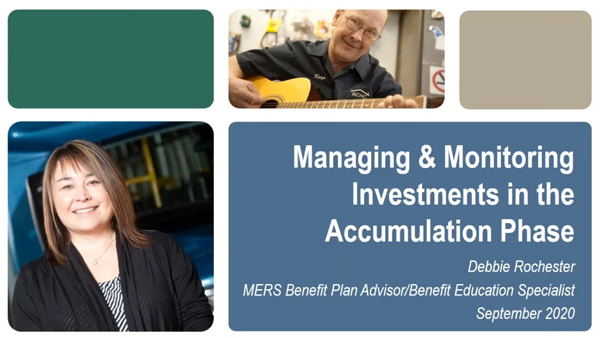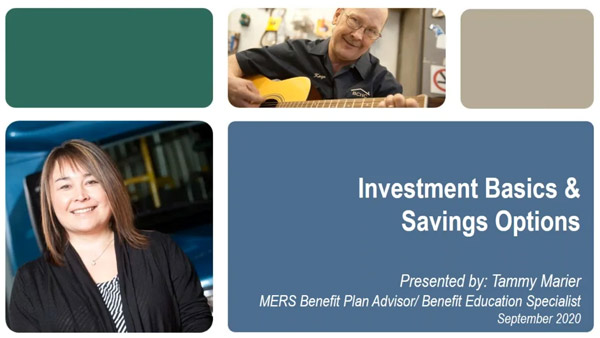Understanding the components of your retirement income is important and Social Security is a big factor to consider. Join Social Security Public Affairs Specialist Vonda VanTil as she discusses hot topics such as eligibility, the process to apply and resources to help you navigate the system. If retirement is in your near future, this video is for you.
Life is full of events that lead to many paper and electronic documents. The high volume often leaves people feeling so overwhelmed that they ignore their piles of ever-growing paper, making it hard to find what they need when they need it. During this video, we’ll discuss how to purge the paper you don’t need and organize the paper you keep. We’ll give you examples of files you should shred, recycle, and save.
Thinking about buying a new home or refinancing your existing mortgage loan? During this video, you’ll learn about the different types of mortgages and the costs associated with mortgage loans. We’ll provide you with steps you can take now to prepare for buying a house. Then, we’ll explore the benefits of refinancing to help you determine if and when it may be a good time for you to refinance.
Financial concerns follow us everywhere, causing stress both at home and work. Growing debt. A lack of savings. Retirement uncertainty. With MERS’ new Financial Fitness tool, you will be able to take control of your finances!
This video will show you a series of financially focused workouts designed to help you see how you are doing and learn where you should be. These easy, intuitive exercises help you make improvements in key areas that affect your overall financial wellness.
A quick walk through of your myMERS landing page and how to access your MERS program information.
Personal finance experts tell us that ideally, we should have 3-9 months’ worth of expenses saved in an emergency fund. It’s also recommended that we save for retirement, so we can replace 80% of our pre-retirement income. For most of us, there is only so much money to go around. In this video, we’ll explore different savings options and strategies to help you plan for the unexpected, while still saving for retirement. Additionally, we’ll provide tips that you can use to help educate the next generation – your kids, grandkids or other important younger individuals in your life – on financial basics such as budgeting and saving.
When it comes to saving and investing for retirement, there are many questions to consider. How much should you save? How should those savings be invested? And what are some strategies to increase your account balance? This video will offer concepts to address those very questions such as finding an appropriate savings ratio, learning about your investment risk tolerance, and the importance of longevity. We’ll then explore savings strategies to use in the accumulation (or working) phase. Finally, we’ll show you how to locate your investment information and make investment changes online.
Depending on your financial goals in retirement, it may be necessary for you and your spouse to consider supplemental retirement plan options. In this session, we’ll explore your retirement savings choices to help you add security to your retirement plan. Another important component to financial security is ensuring your investments are allocated correctly to help you reach your retirement goals. We’ll walk through some investment basics and provide tips to help you evaluate your current investment line-up.
As a MERS Defined Benefit retiree, you’ll receive a monthly benefit payment for the rest of your life. The payment option you choose at retirement will determine how much that monthly payment will be and what will happen to that income stream when you pass away.
It’s not a subject we like to think about, but the fact is, by defining your end of life care wishes, you are making an already difficult time more manageable for your loved ones. We’ll cover important considerations for creating your end of life care directive and talk about ways you can ensure these wishes are followed by your provider and/or caregivers.










